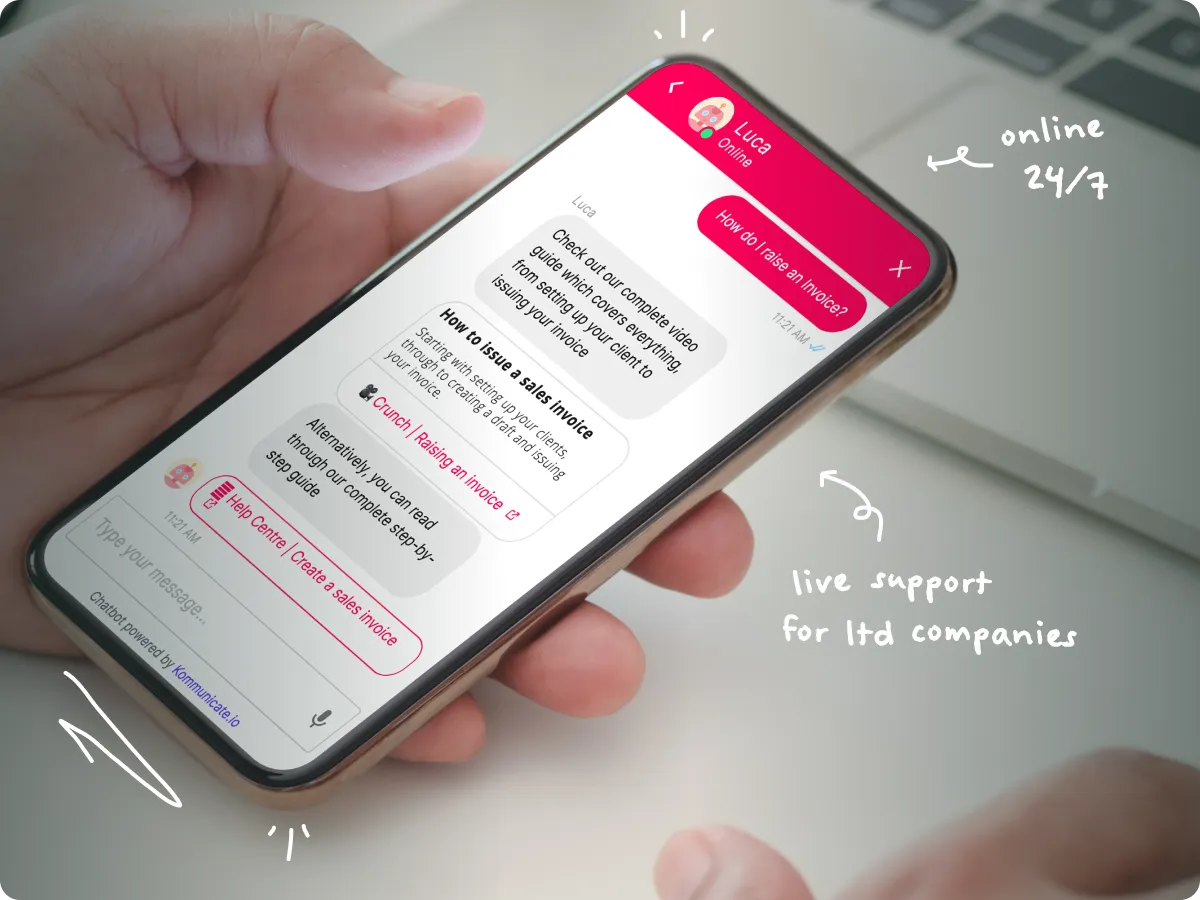There are many benefits to being self-employed, including the flexibility to work on your own terms, the freedom of being your own manager and the opportunity to pursue something you’re really passionate about.
However, self-employment also means taking on the responsibility of managing your finances, understanding your tax obligations and keeping up with the paperwork.
One question that often arises among freelancers and small business owners when it comes to financial admin is whether there is an equivalent of the P45 form for the self-employed. What happens when you stop doing freelance work for a particular client? And how do you make sure HMRC has all the information about you that they need?
In today’s article, we’ll be answering all of those questions, breaking down what a P45 is - and who needs one - and which documents you need to keep as a full-time freelancer or self-employed person living in the UK.
What is a P45?
In the UK, a P45 form is a document given to PAYE (Pay As You Earn) employees when they leave a job or employer. It contains important information such as the employee's tax code, earnings and the amount of tax paid during their employment.
The P45 is divided into several sections, which are then given to different parties, such as the new employer, HMRC and the employee themselves. New employers will refer to the P45 to check how much tax their new employee should be paying, and to make sure they don’t get given an incorrect tax code.
Do self-employed people need a P45?
Simply put, no. As a self-employed individual, you are not an employee and therefore don't require a P45. Instead, you're responsible for completing an annual Self Assessment tax return to accurately calculate your tax liability.
Self Assessment is HMRC’s way of finding out how much income tax and National Insurance you need to pay. Unlike employees who have their taxes deducted automatically through the PAYE system, self-employed people are responsible for calculating and paying their own taxes by HMRC’s Self Assessment deadline (which is usually the 31st January).
PAYE employees will receive a P45 only when they leave or change jobs, while self-employed workers will need to complete and submit a Self Assessment tax return each year. As a self-employed person, you don’t have to declare when you start or stop working with a particular client - you just need to declare all of your earnings for that tax year.
What if I’m a PAYE employee with a freelance side hustle?
If you’re freelancing on the side of being a full or part-time PAYE employee, you’ll still need to register as self-employed and submit your Self Assessment tax return each year, declaring all of your income (from both your primary employment and your freelancing work). You’ll also be given a P45 by your employer when you leave their company.
Self Assessment tax returns: What you need to know
The Self Assessment tax return includes details of your income and expenses; helping you and HMRC ensure you’re paying a fair amount of tax. This is done through completing a Self Assessment form (or Form SA100), which is usually submitted online to HMRC, although it’s still possible to file in the old fashioned way by sending a printed form by post.
To complete your Self Assessment, you’ll need:
- Your Unique Tax Reference (UTR): As a self-employed worker in the UK, one of the most important documents you’ll need is the UTR. This ten-digit number is issued to you by HMRC and acts as your personal tax identification. It’s used to track your Self Assessment tax returns and all your correspondence with HMRC. You’ll be given a UTR number when you first start your self-employment journey by registering yourself as self-employed.
- Your National Insurance number: While employees pay National Insurance Contributions (NICs) through the PAYE system, self-employed people make their contributions separately. These contributions contribute to your entitlement to certain state benefits, including the State Pension. When you register yourself as self-employed with HMRC and are assigned your UTR, you’ll also be able to make your National Insurance contributions as part of the Self Assessment process each year.
- Details of your income from the tax year: This includes all of your income from self-employment (and regular employment), plus any dividends you may have and interest on shares.
- Expenses and charitable contributions: You should also include records of your business expenses, and any contributions to charity or pensions you’ve made that might be eligible for tax relief.
- Invoices: When you’re self-employed, it’s important to maintain accurate records of all your income. This includes creating and issuing numbered invoices to clients or customers for your goods or services. These records will help you calculate your taxable income and provide evidence of exact payment in case HMRC ever want to check.
Once you have all of these documents to hand, you can check out our detailed guide on how to complete your Self Assessment form. If you’re ever in doubt about what you need to keep a record of or how to complete your Self Assessment, the best plan of action is to speak with a specialist and ask them for help and advice.
{{pt-self-assessment}}
No P45, but still plenty of paperwork
Although there’s no exact P45 equivalent for self-employed workers, there are other important documents and processes that are specific to freelancers and small business owners, with the primary one being your Self Assessment tax return. Understanding how Self Assessment works and why it matters is extremely important for remaining compliant with UK tax laws, and it’s absolutely crucial you submit your Self Assessment tax return in time each year.
If you have any questions around your self-employment status, your tax obligations or the paperwork you need to keep track of and submit, always seek advice from a professional accountant or tax advisor who specialises in working with freelancers and small business owners. They’ll be able to help you fill out all the relevant forms in time, and stay on top of all your financial admin and responsibilities so that you and your small business can thrive.
.svg)







.jpeg)



